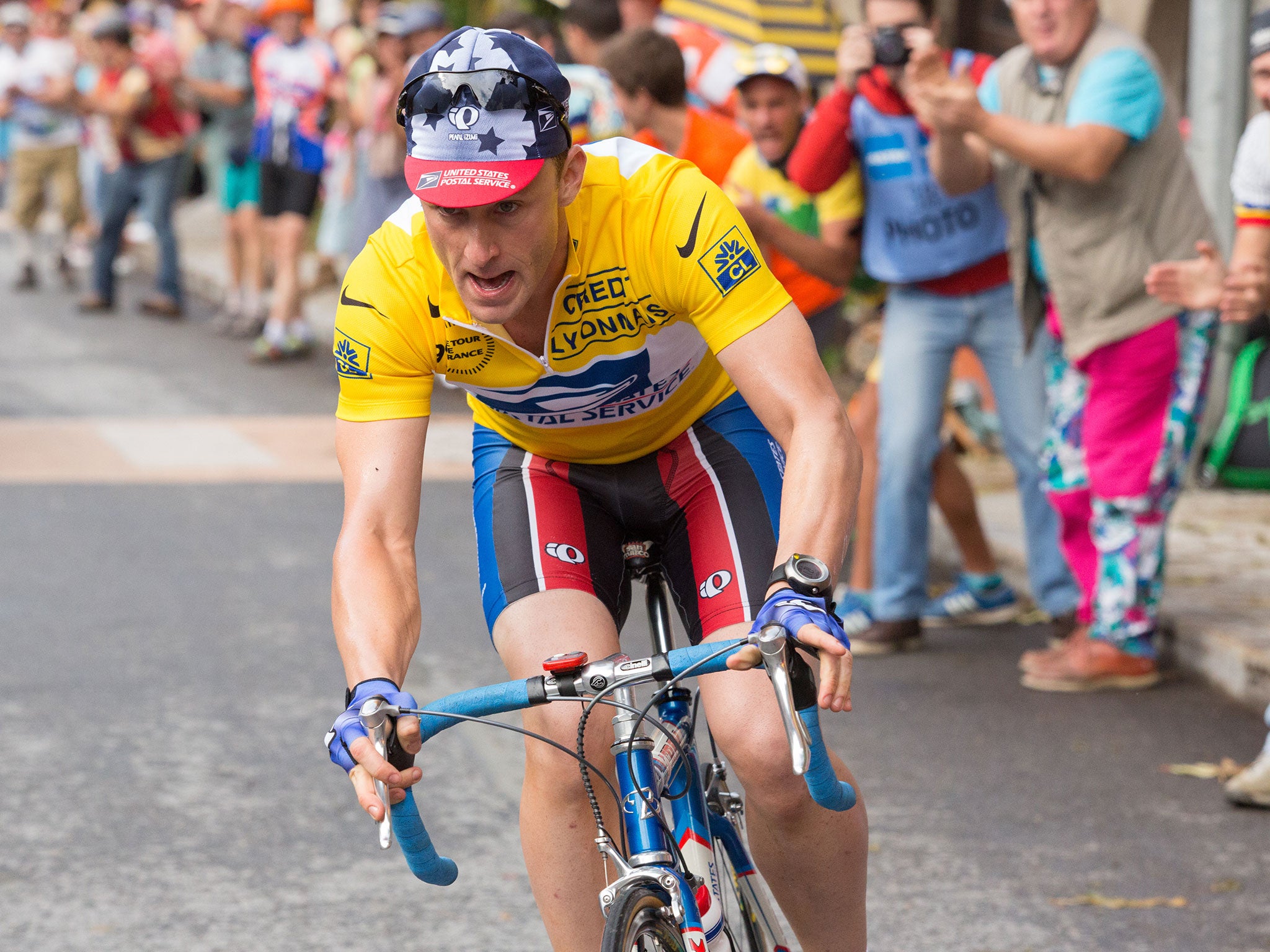The Program, Toronto Film Festival, review: Lance Armstrong's charisma is left in the peloton
There are only so many scenes of Armstrong using drugs that can retain drama

The rise and fall of Lance Armstrong is one of the great sporting stories. Armstrong overcame cancer to “win” the Tour de France seven times, before he was revealed to be a drugs cheat and stripped of his titles. He transcended his sport, raising hundreds of millions for cancer charities, and was such a celebrity that after years of drug denials he made his confession to Oprah Winfrey in 2013. There have been a number of documentaries on the disgraced cyclist, and now comes a fictional effort by Stephen Frears.
Ben Foster is given the task of playing Armstrong – which is like asking someone to ride up the Alps on a tricycle. The trouble with many sporting biopics is that it’s impossible to replicate the charisma and aura of a superstar athlete. Will Smith failed miserably as Muhammad Ali. Sporting heroes are also creatures whose excitement is wrapped up in the moment. Will or won’t they succeed? Can they come back from injury? And increasingly: are they or are they not on drugs? Once the answer is known, much of the tension and excitement evaporates.
British director Frears recognises this conundrum and so whizzes through Armstrong’s debut on the Tour, the cancer treatment, and his exploits winning on the track. Instead he concentrates on showing the lengths and tricks Armstrong would go to concealing his drug use. There are scenes of blood transfusions in the bus, hiding needles in the rubbish, and obstructing drug officials.
But there are only so many scenes of Armstrong using drugs that can retain an element of drama. Frears shows these scenes in a procedural manner. The film is based on the official US drug agency report on Armstrong, which might explain why it often feels like a stale reportage.
Foster, 34, is less believable as a 21-year-old rising star, but grows into his role, especially after his body transforms following the cancer. A character actor best known for The Messenger and Rampart, he lacks the charisma necessary for the role. He plays Armstrong as the stern bully, which the testimony of his teammates highlight that he was. But he is a more complicated personality and in the scenes where Armstrong is creating Livestrong, his cancer charity, there is none of the charm that the cyclist showed for the cameras.
Another odd decision is the failure to look at Armstrong’s personal life. In the period depicted on the film, Amstrong divorced and had a relationship with the singer Sheryl Crow. Information that is here absent. Yet Frears goes into detail about the religious upbringing of Armstrong’s teammate Floyd Landis (Jesse Piemons of Breaking Bad), whose testimony is the nail in the coffin for Armstrong.
French star Guillaume Canet (The Beach) plays the Italian drugs mastermind Dr Michele Ferrari as if he was a Bond villain. He has a dodgy Italian accent and a fashion sense borrowed from the Liverpool football team of the 1970s.
Much better is Bridesmaids star Chris O’Dowd as journalist David Walsh, whose conviction that Armstrong was a drugs cheat led to him raising enough serious questions about the cyclist that he put a cloud of suspicion over the rider. The film shows Walsh being ostracised by his fellow journalists on the tour, falling foul of his editors when Armstrong successfully sues for libel, and as a family man in Ireland.
Subscribe to Independent Premium to bookmark this article
Want to bookmark your favourite articles and stories to read or reference later? Start your Independent Premium subscription today.




Join our commenting forum
Join thought-provoking conversations, follow other Independent readers and see their replies
Comments